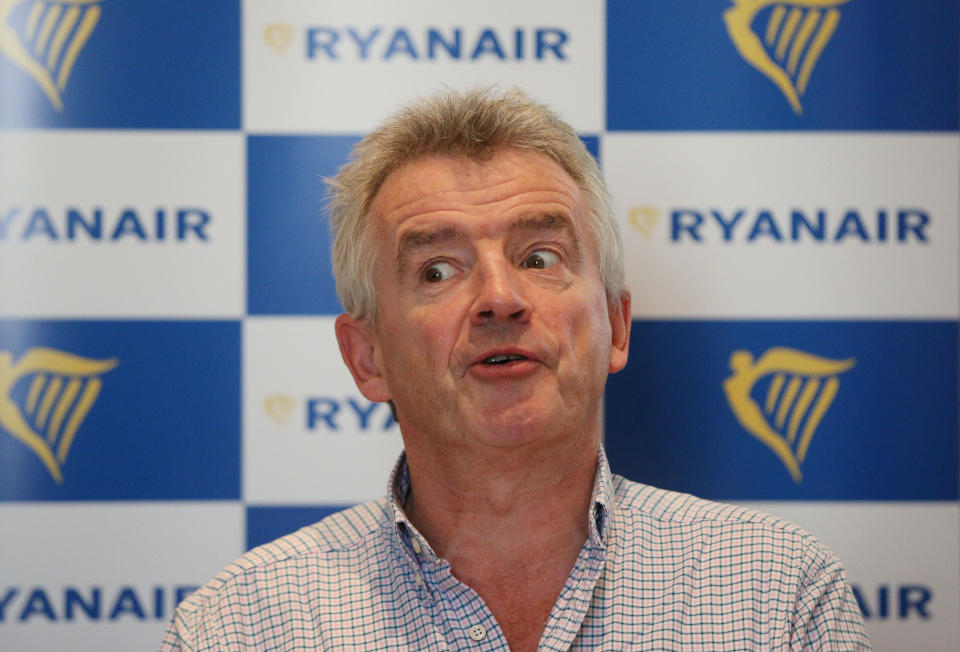Coronavirus: Ryanair boss slams 'useless and ineffective' travel quarantine

Ryanair’s chief executive has stepped up his attack on the UK government over its 14-day travel quarantine plans to curb the coronavirus, dubbing them “useless and ineffective.”
The government faces a revolt from airlines, airports and other travel firms over the strict rules for new arrivals in Britain, with leading UK business groups and many Conservative MPs weighing in behind them this week. There are fears it will worsen the severe crisis already facing many UK firms reliant on tourism and business travel to and from the UK.
Prime minister Boris Johnson warned on Wednesday (3 June) Britain risked a second peak from imported cases without the measures, and ministers highlight public support for such restrictions.
But the announcement of fresh details over how the scheme will work has sparked a fresh tirade from Ryanair’s (RYA.L) CEO Michael O’Leary, one of its most vocal critics. O’Leary tore into the proposals, which come into force on Monday (8 June), in a series of broadcast interviews.
He accused the government on ITV’s Peston programme on Wednesday night of “one shambles after another of mismanagement, making it up as they go along.” He pointed out the quarantine form for travellers was not yet available on the government’s website.
READ MORE: Tory MPs revolt over ‘blunt’ 14-day quarantine rules
On Thursday morning he then told BBC Breakfast: “You don't have a quarantine, people are going to be allowed to come in next week through Heathrow and Gatwick, they then get on the London Underground, the trains, the buses, the taxis, to get to their destination.
“This is going to do untold damage to British tourism – the thousands of hotels and restaurants and guesthouses all over the UK that depend on European visitors who will be deterred by this useless and ineffective quarantine.”
O’Leary said the measures made little sense when some countries had lower infection rates than Britain, claiming flights were “perfectly okay” if passengers wore masks.
But Northern Ireland secretary Brandon Lewis told BBC Radio 4’s Today programme on Thursday that the government was working on “travel corridors” and other measures to facilitate travel to countries with COVID-19 under control.
It comes after prime minister Boris Johnson had sought earlier this week to defend only imposing the policy many weeks after the crisis began.
READ MORE: Hotels and travel firms slam 14-day quarantine rules
“Once community transmission was widespread within the UK, cases from abroad made up a tiny proportion of the total,” he said in Downing Street’s daily coronavirus briefing.
“International travel plummeted as countries around the world went into lockdown. As a result measures at the border were halted because they made little difference at the time in our fight against the virus.
“Now that we’re getting the virus under control in the UK, there is a risk that cases from abroad begin once again to make up a greater proportion of overall cases.”
Leading business groups also warned this week the policy risked hammering the UK travel sector, making many other firms less competitive and sending the message the UK is “closed for business.”

 Yahoo Finance
Yahoo Finance 